"Even if the album only had that one track on, it would still be on this list": Humanist's Rob Marshall on the 9 records that changed his life, supporting Depeche Mode in stadiums, and why he'll never switch to digital amp modelling
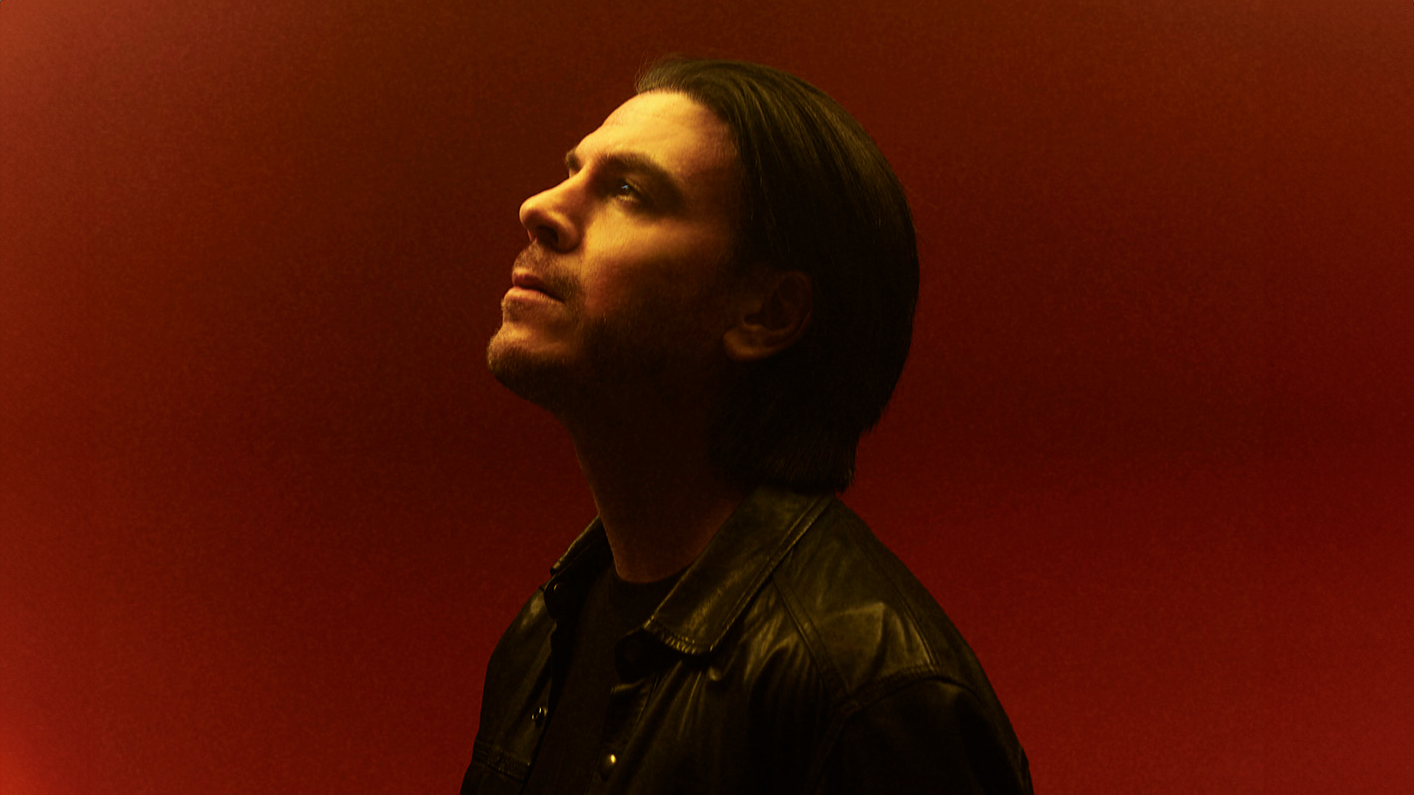
There's a reason Rob Marshall makes connections with iconic musicians – they recognise his immense talent. That's why when Depeche Mode were gearing up for their Momento Mori world tour earlier, Dave Gahan reached out to the guitarist and creator of Humanist.
They already had history – the Depeche Mode vocalist guested on the first Humanist record with the driving Shock Collar, after being introduced by Rob's then-collaborator Mark Lanegan. Through Gahan's patronage, Rob found himself and Humanist's live lineup as the support act for Depeche Mode in European stadiums.
"I don't take that kind of thing for granted – it was amazing," marvels the Burnley-born musician as we recap on the highs (and crushing lows) of the last couple of years. "There were about 25,000 every night, and I honestly thought when we went on it would be a very sparse crowd, and it wasn't. Depeche Mode fans are hardcore – they literally sleep outside the venue overnight to get to the front. By the time we went on I was thinking it was going to be fairly quiet but it was about 80% capacity – it was just mental."
Rob's project was received rapturously as a live outfit – even by the notoriously partisan Mode faithful, and I can't help feeling his towering guitar sound and broodingly anthemic songs belong in those kinds of cavernous venues.
He first caught my ear with his previous band Exit Calm – a four-piece whose 2010 self-titled debut is one of the finest indie debuts of the last 30 years for my money. It marked Rob out as a singular guitar talent in the lineage of other mavericks; Squier, McCabe and Marr. Song-driven players who also created singular worlds with their sound. While the world never elevated Exit Calm accordingly, Rob's proved since he's delivering on that early promise outside of a traditional band.
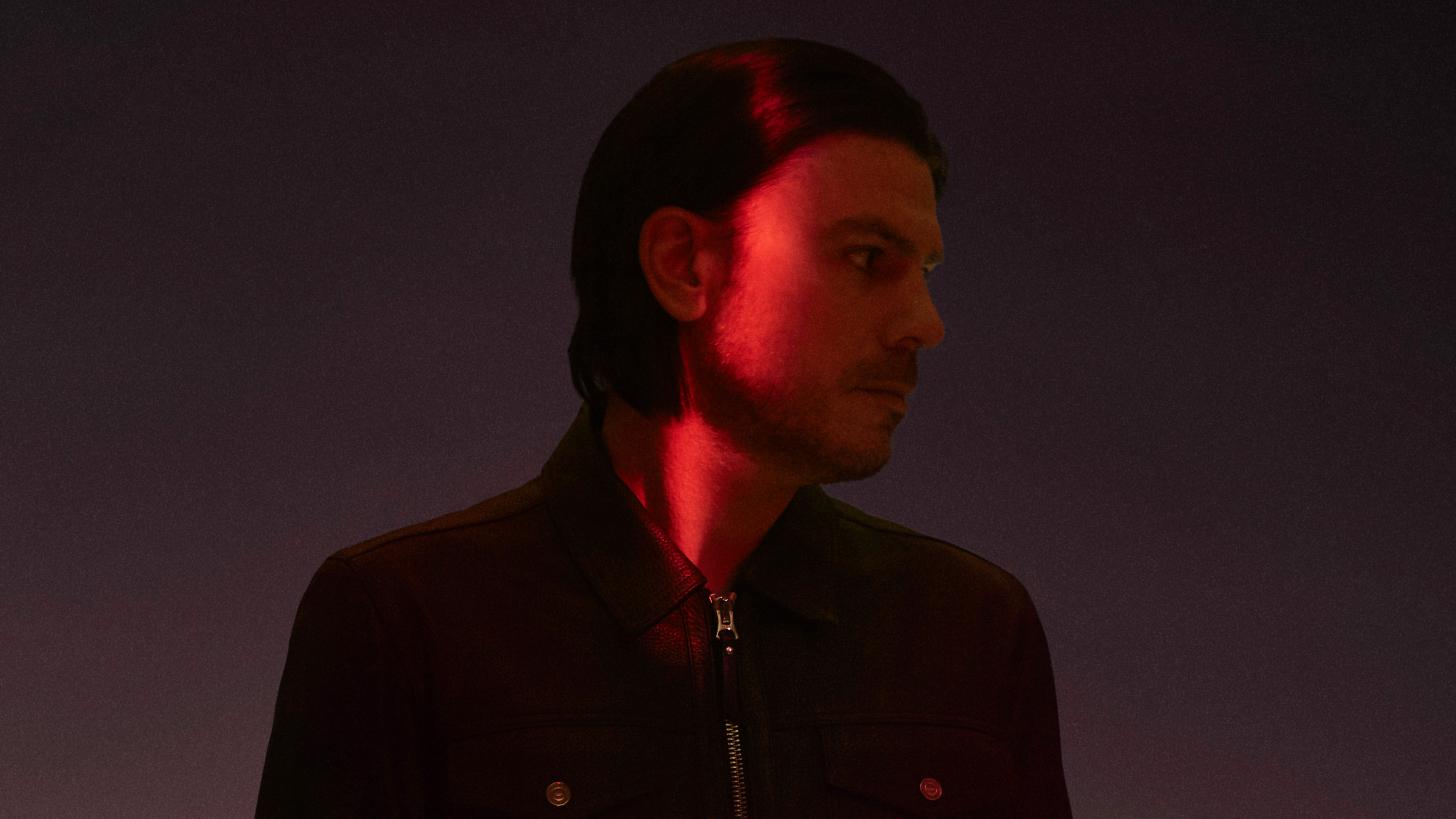
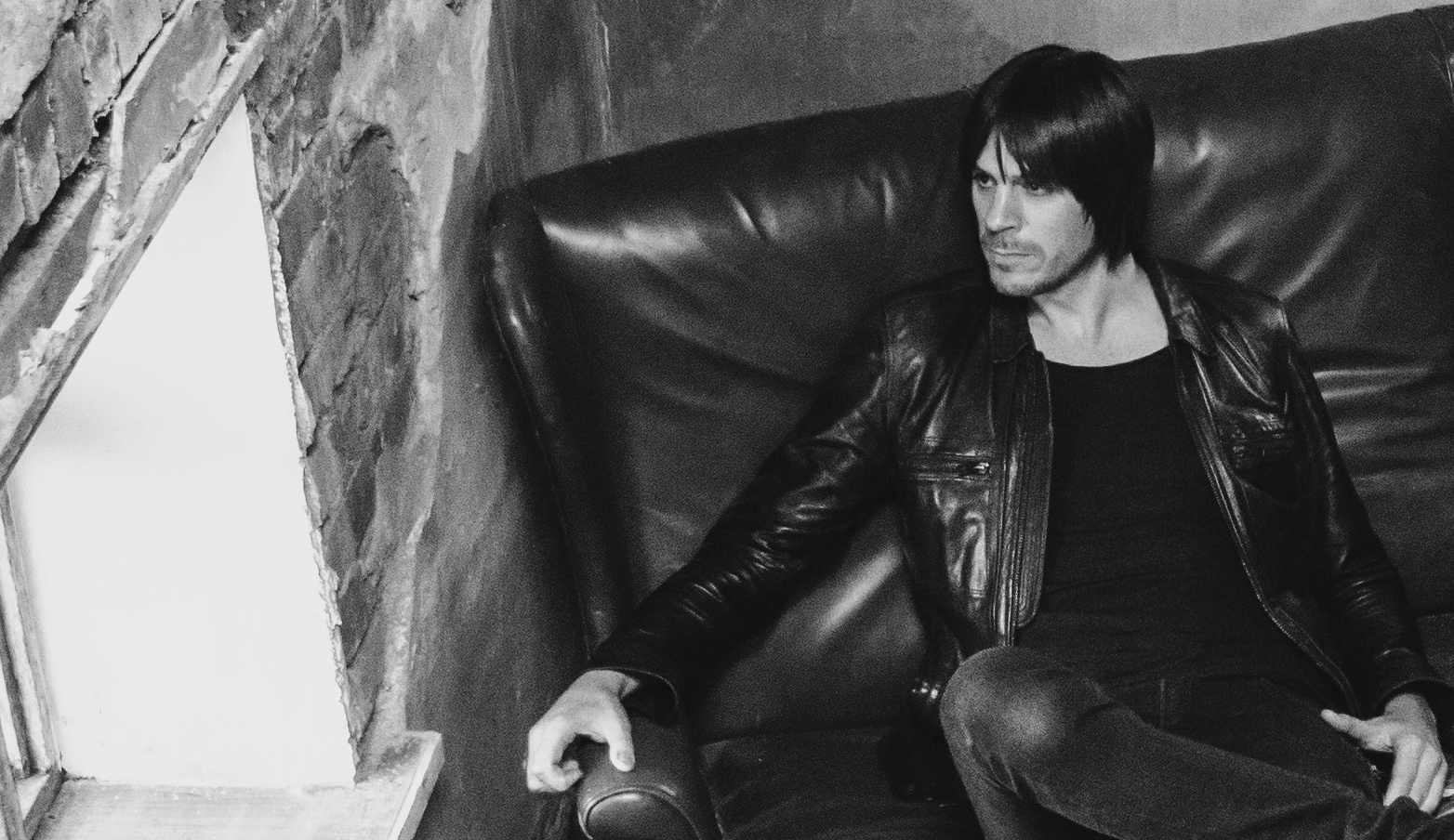
Humanist tours the UK in October with a live linup including vocalists Jimmy Gnecco (Ours) and enigmatic James Cox (Crows) on the following dates:
8 – Glasgow
9 – Manchester
10 – London
11 – Birmingham
13 – Sheffield
14 – Nottingham
15 – Leeds
16 – Brighton
15 – Bristol
On The Edge Of A Lost And Lonely World is his second album as Humanist and follows 2020's acclaimed self-titled debut. Again, Rob has assembled the great and the good of vocal talents to help deliver his compositions – from Ed Harcourt and former Midlake singer Tim Smith, to Black Rebel Motorcyle Club's Peter Hayes, US indie songwriter Rachel Fannan, the return of Gahan on the song Brother and appearances from fellow Lanegan collaborator Isobel Campbell. But while the album title may sound bleak – Rob's music is a much more nuanced reflection of his life. It's the only way he knows how to write, and as well as the light, it touches on the loss of close friends and his own personal challenges; including overcoming cancer during lockdown.
"I don't want to make the big thing of it, because I am alright," he tells me with typical humility. "Obviously it was a tough minute, and it combined with other things that were happening around me – [losing] Lanegan and my close friend. But everybody has stuff going on, don't they? I guess everything I feel that I do in music and in life, I can't disconnect them. I'm sure it's like that for a lot of people.
Want all the hottest music and gear news, reviews, deals, features and more, direct to your inbox? Sign up here.
"So the album feels very reflective in terms of what was going on in my life, it's almost like I can map it out as I'm listening to it – where I was."
This album is about life – it's about survival
Rob points to the harrowing pitch-black mood of The Presence Of Haman – a composition that features an otherworldly treatment of his own vocals under the name Madman Butterfly – as music that was made during his lowest point. "It reminds me of a period of time when I felt like the walls were caving in," he admits. "The placement of that before the last track, which is The End, felt totally necessary and right for me, because no matter how dark things get, I know I just have to get through it. It's always with the belief that there's something better at the end of this. Just keep going. This album is about life – it's about survival. It's not about giving in, it's the total opposite of that."
This cuts to the core of why Humanist's music is so consistently engrossing to hear – Rob balances soul-bearing reflective music that also allows space for his vocal guests to shine. But the confidence to finally track his own voice on record alongside the other singers was born out the encouragement of working with Mark Lanegan – a figure who still looms large in Rob's creative mind. Rob contributed to two excellent solo albums (2017's Gargoyle and 2019's Somebody's Knocking), while Lanegan guested on the first Humanist album, but he was also a friend who consistently encouraged him.
"About six or seven years ago, I was doing a lot of writing for Lanegan and occasionally I would just I would map down a vocal," remembers Rob. "I didn't really think anything of it because I was thinking of it like an instrument. So sometimes I just throw it down and I was thinking that it might be a guitar line.
"So I sent something across to Mark and normally one in every three tracks I sent him he'd reply, 'Yeah, that's great – I'll have that one', but then I had a couple in a row where it just didn't seem to be hitting.
He thought I had a really good voice, he encouraged me a lot to sing
"And then I just had this one track that became the song Gazing From The Shore on Somebody's Knocking. I sent him it and he replied, 'Wow' – and he would always say 'God dammit' if he liked something. I had all these different countermelodies going off, but the melody that's pretty much on that entire track is my melody. And he was like, 'We're hitting new territory here. Any vocal maps you've got, send them through.'
"He thought I had a really good voice, he encouraged me a lot to sing, and he was like, 'You need to do some vocals', but I said, 'I can't, I'm not that guy. I haven't got the thing that you've got, I haven't got that confidence'. I'm happy where I am – stage left with the guitar, that is my comfort zone.'"
Lanegan passed away in 2022, but his presence is keenly felt on the sublime Brother, sung by Gahan and featuring Isobel Campbell with lyrics by Ed Harcourt; fellow musicians from Lanegan's musical inner circle.
Mark never, ever spoke down to me in anyway – the opposite way in fact
"Brother is a tribute to Mark – a very gentle, respectful tribute to him. Ed was already on the record at that point. Ed wrote the vocal and lyrics and I just wanted to add to the weight of the tribute in a gentle way by having Isobel play of there. And Mark had worked with a strings player called Sietse van Gorkom, and I got him to replace the string parts I'd done. It felt like this united front of comrades.
"Mark introduced me to Dave, so that in itself felt like a tribute because I wouldn't know Dave without Mark. He was such a big character, and obviously massively respected. To fall into that circle… it's really quite touching for somebody to open their arms and allow you into their world, then make you feel totally on the same level. Mark never, ever spoke down to me in anyway – the opposite way in fact."
As we discovered when we spoke to Rob in 2020, he recorded the first Humanist album with a minimal Pro Tools LE setup. And it wasn't broke, so…
"I just kept everything the same," he laughs. "Nothing is different. The only thing that's different in terms of this record is I didn't mix it. I got a guy called Chris Sheldon to mix it who's worked with Biffy Clyro, Foo Fighters and Oceansize.
"He was so good. Sometimes when you work with mixers and you point out things you might not like with the mix, they get really defensive. And Chris wasn't like that. I said to him, 'Look, I've got the mixes as far as I can get them.' And I felt like they were in pretty good places. But I just didn't want it to feel like it was the same sound as the last record. I said, 'I just want it to feel a bit more polished. And just to elevate and take it a bit further, or as far as you can, but not rewrite what I've done.' And he did that every single time.
"He wanted me to be happy, he really did," adds Rob. "He wasn't trying to make his own record. He was trying to make the record that I wanted to make. I'd work with him again. I'd recommend him to anyone – such a nice guy. So supportive. It's great working with people like that."
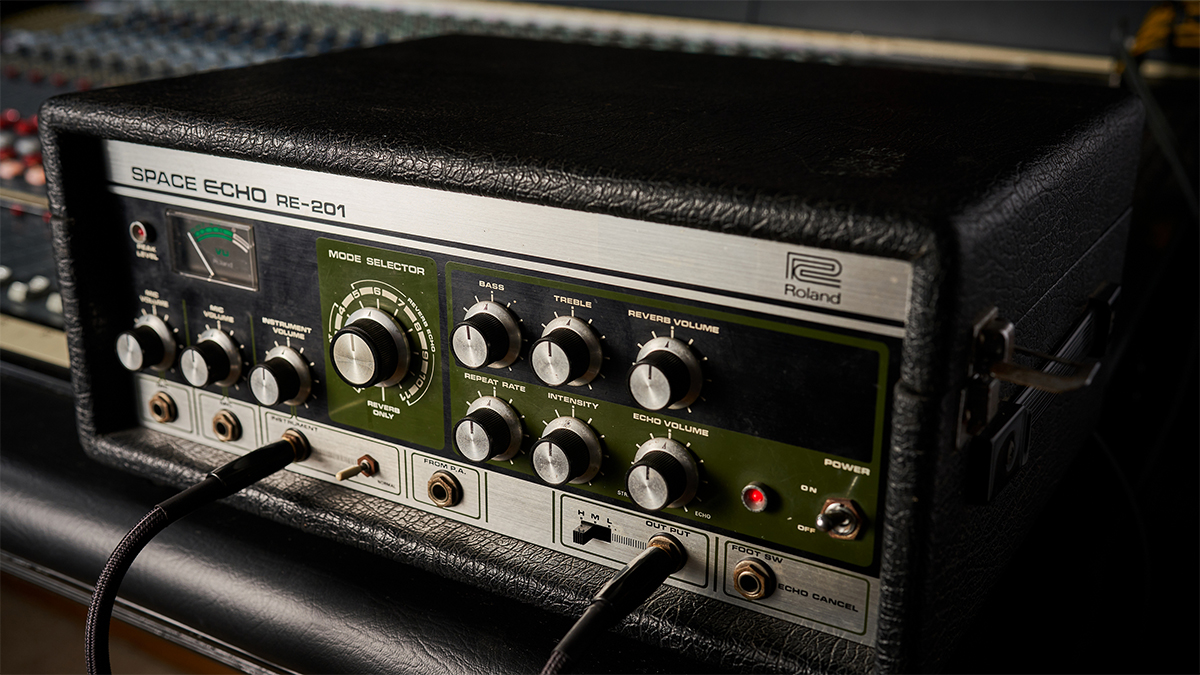
It would be like losing a finger now if I lost the Roland Space Echo – I've had it for 24 years
Rob's guitar sound is easily identifiable to fans of his previous band Exit Calm – haunting and drenched in the ethereal sounds of an original Roland RE–201 Space Echo.
"The Space Echo has always been part of my live setup – I use it all the time. I took it on the Depeche Mode tour, and with Jane's Addiction. It's never left and I can't imagine ever replacing it. It would be like losing a finger now if I lost the Roland tape machine – I've had it for 24 years."
Again, if it ain't broke… but more than that, it's part of what a lot of players search for; it's Rob's sound.
"I spent about five years tearing my hair out with sounds – particularly with getting the sound where I wanted it with the gear I had," he reflects. "I got so anal about it I could tell the difference between plectrum weights, strings and leads. But I've done all that now, so why would I want to f**k it up? Stick to what you've got if you've put all that history and time into that."
Rob isn't sold on making the switch to digital amp modelling for convenience either…
"I've got a friend in a band actually – I won't mention who it is but he's in the same studio as me – and he's replacing all his gear with the Kemper," Rob notes. "He's in the process of doing all that, and I know [Nick] McCabe did that actually. I know it's easy to transport all this stuff around, and it is much more convenient but I would rather be lugging a 4 x 12 round, and my battered gear, knowing that I've collectively pulled all these elements together and I've made this thing. And it might be a bit rough around the edges, the handle might be hanging off the cab, and there might be gaffa tape and screws missing, but that's my gear – it's been with me and it's part of me. I don't want to replace it – it's history."
While he may track guitars initially at home with AmpliTube and Guitar Rig, Rob replaces them later in his soundproof studio space using his live rig. "There are tracks like Holding Pattern where it's just got to be loud," he explains. "Those screechy wah parts – it's got to be it's got to be full throttle.
I think that about the Kemper stuff – yeah, it might replicate it but it's not the same – it's not, and it never will be
"It's just the shake of the cabinet, the speakers, the guitar, the microphone and everything," he enthuses. "And it might squeal a little bit in places but I like all that stuff. I don't want to clean it up. I don't want to take it out. When you do it doesn't feel the same. You can do guitars at a lower volume but I've always been a loud guitar player, as you well know. And there's just something else you get when you crank it up that you just don't get the lower volumes. I think that about the Kemper stuff – yeah, it might replicate it but it's not the same – it's not, and it never will be."
The core of the Rob Marshall sound is the dark horse of the Marshall lineage – the fantastic JMP-1 preamp into a power amp, Marshall cab with a rack unit and Space Echo on top. Out of that main amp it goes into an Alesis MIDIVerb 4 rack effects. "I push the decay up pretty high on it," Rob explains. "That goes through a Marshall bass amp, and I use that to provide the low-end warmth. And essentially it's the same signal I've got going through the main amp, but it means I can have the main amp quite dry and the bass amp totally wet. And I just balance the two together, so whatever I'm doing I've got this really nice bassy reverb cushion of sound that sits underneath."
Rob will also create loops in real time via the now-discontinued Lexicon JamMan rack unit. "There's a lot of foot tapping and pulling my hand away from my guitar and twiddling knobs quickly and going back to playing," he says. "But I've just got so used to it now – it feels natural now. It's second nature."
It's inspiring to hear Rob speak about his sound – and when other players might be condensing their rigs, he's loyal to his trusted rig. It's part of what he's taken from the experience of seeing his own guitar inspirations.
"When I used to go and see guitar players like John Martyn or Vini Reilly, I loved to see the gear from magazines that I'd read years ago. You'd walk to the front of the stage and you'd know it was their gear because you'd seen it in pictures. There's history there and nostalgia. When I used to go and see Killing Joke and I'd see Geordie's guitar – that's the guitar I'd seen in pictures, and I love that."
Humanist's Rob Marshall: 9 albums that changed my life
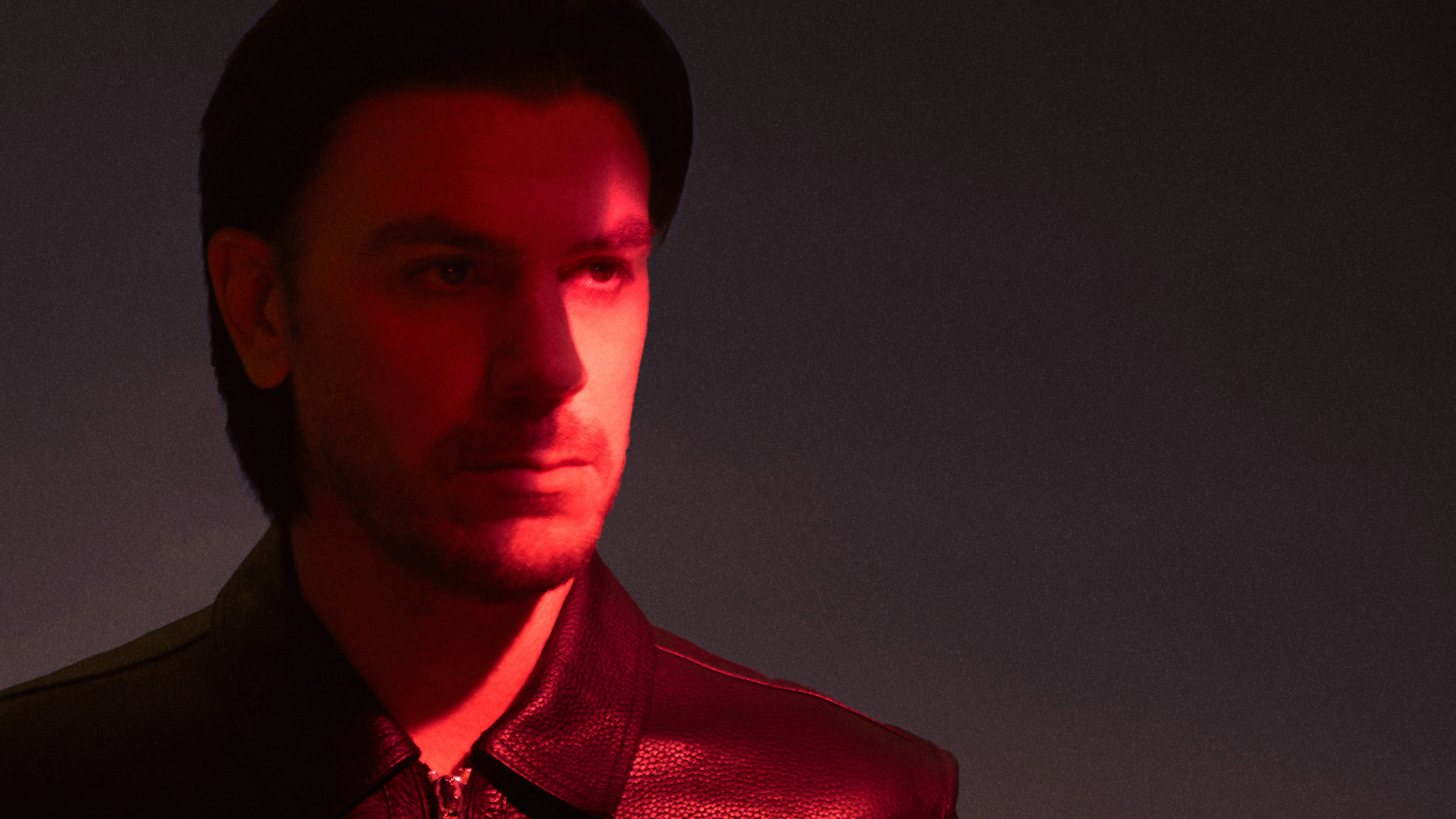
The Beach Boys – 20 Golden Greats (1976)
They're just some of the best pop songs ever written
"I was jumping in the car with my dad and driving around. My dad would put the cassette tapes in – and this is where my love of volume probably came from because my dad would crank up car stereos and we'd be driving around and just hearing those tracks at full pelt. It was unbelievable listening to songs and on side two I remember in particular God Only Knows, Good Vibrations, Wouldn't It Be Nice, Heroes And Villains, I Can Hear Music… I mean, they're just some of the best pop songs ever written.
"I haven't seen my dad for 25 years and it's a very broken, fractured relationship that I've had with him. But one of my fondest memories is jumping in the car with him, driving and listening to the Beach Boys. In particular, I remember listening to the Beach Boys for a good period of time because he loved it and just the sound that you could sing along to it full pelt and it was just great, man. Those songs are so good."
The Waterboys – This Is The Sea (1985)
"I think I heard it when I was about 15. My mate from school, I went round to his mum dad's house one time and he put it on. There's a track on there called Spirit and he cranked it up.
"It's only about a minute and a half long but its lyics, 'Man gets tired, spirit don't / Man surrenders, spirit won't / Man crawls, the spirit flies / Spirit leaves, when man dies'…and it goes on like that. It's very just a gentle piano thing. But it's just about, again, belief, which is something that has stayed with me – all these little kind of things that have stayed with me over the years.
"It was a massive album and I just love the sonic sound of it. In particular, there's a track that I love, which is the title track This Is The Sea. The sound of the layered acoustics all drenched in reverb. But the main thing was the energy and the spirit that oozed out of Mike [Scott]'s voice. He was young, innocent, full of hope but a man also wise beyond his years – still looking out at his life before him. It was reflective of that kind of desire to live.
I knew that whatever it was in that music was having a profound effect on me so I wanted to keep repeating it
"I really associated with that feeling because I was in Stockton-on-Tees at the time, and I wanted to get out of that town. The upbringing that I had, I had a huge desire to break away from it and do something different. When I was, and I would say again, probably between 15 and 16 and in the last year at school, I had a cassette tape with it on. I used to set it up at nighttime and wake up first thing in the morning, half asleep, I'd put the headphones on, I'd crank it up and I'd listen to This Is The Sea at full pelt. It's about six minutes long and there's a bit of the end where he's like, he just repeats, 'That that was a river / That was a river / That was a river / And this is the sea!, and it just sent shivers down my spine and my hairs standing up.
"It made me feel that I wanted to get up and do something special and profound that day. I knew that whatever it was in that music was having a profound effect on me so wanted to keep repeating it. I thought, well, if I just do it first thing in the morning it's going to stop me putting me in the right place every day. So did it for about six months every f*****g day. I just kept on listening to it, over and over again. It was a massive, massive record for me."
Jimi Hendrix – Electric Ladyland (1968)
"It's Hendrix – this could have been any of the three albums. Electric Ladyland probably tips it. It still sounds so futuristic – it's from a different planet. Was Jimi even a human being? It's so weird for that time. The structures, they sound so natural but at the same time some of them are slightly freeform and not typical structures.
"In particular the track Have You Ever Been (To Electric Ladyland) – just stunning. I'd never heard anything like it, even now. Jimi's voice sounds godlike. And Voodo Chile, it feels like you're in the room with the band. It's so live and you can tell it's a band jamming and playing together.
"Voodoo Child (Slight Return)… where does that even come from? Who's even done anything on a scale like that? It's just insane. The production on the record is just incredible. Burning Of The Midnight Lamp is one of my favorite trucks. It definitely had a big influence in terms of like just feeling like there was something to want to strive towards. I love the song structures and I've always loved Jimi's intricate guitar playing – not so much like the big noodly solo stuff, but all the other kind of gentle things.
"A friend gave me a Jimi Hendrix tab book as well. One of the first tab tablature books I ever had when I was 14/15. And I remember it because there was a track I wanted to learn, Little Wing, and it was right in the back. The guy ripped out the f*****g pages for himself. The one track that I really, really wanted to learn. I could see the first page with the Little Wing heading and the lyrics but the the two pages for the tab he'd just torn out. I thought, you bastard!"
The Verve – A Storm In Heaven (1993)
"The production on it, from John Leckie, it just sounds so good. I listened to it again recently and some of the songs I'd jump towards now are actually things like Blue – so good and it's one of the songs I used to skip by.
"I sounds like rock and roll. Now when I listen to it, it's just got a really powerful strong vibe about it. As a whole band, they were just phenomenal alone there. Everybody just kind of sat in their own little pocket perfectly. And it was just a beautiful sonic mashup of a sound. And Nick McCabe obviously – totally at the top of his game really.
"I've always loved Pete Salisbury's drumming. He always had this way of making things sound like they're moving all the time and rolling along with the way he played his toms and snare. It always feels interesting to me.
"That was such a big record and one that influenced just in terms of the sound. I thought, I think I know how to do something like that and I feel like I could be a part of that. I like the idea of being a quarter of something.
"It wasn't like I was listening to Eleanor Rigby or Strawberry Fields, thinking I don't know how to do that. When I listened to A Storm In Heaven I kind of understood it and I felt like I could be a part of whatever it was."
Vini Reilly – The Durutti Column (1989)
"I know I got it about 20 years ago, I think I bought it in a shop in Sheffield, and one of the main things to remember about it is when I pulled out the cover, I'd heard the name The Durutti Column, and I knew they were on Factory Records, but I saw his face and his haircut – Vini looking very kind of reflective and quite somber. There was just something about it, and I think I'd just got a record player at the time – I was pretty new to the vinyl thing. So I just bought it on a whim and then just fell in love with the record.
"The main thing that struck me and still stays with me now is Requiem Again, which is this beautiful gentle track but it's huge. It's like a symphony and so poignant and delicate. When I listen to it, it just almost makes me cry. Even if the album only had that one track on, it would still be on this list – it's that powerful for me."
John Martyn – Inside Out (1973)
"I love all of his '70s records. Inside out is quite an experiemental record, but it's almost like the brother or sister to Solid Air. It feels similar but more experimental. Outside In being the equivalent of I'd Rather Be The Devil.
"From the first track when Fine Lines comes in and you hear his vocal – he's talking off mic and he says, 'I think it felt natural' and he starts singing with his acoustic and it's just beautiful. I fell in love with that first track and then the rest of the record.
"Beverley is a really gentle acoustic track that's just a beautiful instrumental. John's personality comes through in a track called Glory Of Love, which is like very kind of cheeky John Martyn. And Ways To Cry, which is like a typical John Martyn pulling at the heartstrings. I mean, that guy probably serenaded many women over the years.
"It's weird, isn't it because he was an obnoxious kind of drunk but at the same time you just know that could probably just turn on the charm and suddenly, with a few little kind of flows across the strings and his beautiful voice, have people falling for him back then. That's all very intriguing in its way.
"That floor-mounted Echoplex he was using in the '70s too – just amazing. What an incredible guitar player, so innovative. Nobody like him whatsoever."
The Chameleons – Strange Times (1976)
"I remember my mate phoning me up. This is about 2002, maybe 2003. I was living in Sheffield and there's a place called The Casbah. He said, 'What are you doing tonight? Let's go down to The Casbah, there's a guy playing who used to be in a band called The Chameleons. He's called Mark Burgess and he's doing an acoustic gig. I thought nothing of it, went down and f*****g hell man, it was so good!
"What I loved about it was as soon as I got down there it was the crowd – it was the people that were down there. They just seem to have this cult audience of really kind of beautiful, odd or unusual people in leather jackets and boots – all part of this huge gang. Everybody seemed to know everybody. Yet nobody was from Sheffield. It's like they were following this leader around.
"I remember Mark came out. And he said, I'm pretty sure he started with an acoustic version of Swamp Thing. And it was just like, wow! I remember in particular, he did a track called Time, The End Of Time [singing] 'Don't waste your time'. There's a bit where he sings. 'Time slipping away – have to make the most of your time', and everybody's just singing along with him. And I was like, 'F** me!' Because his voice… it was quite unusual. It wasn't like a Jeff Buckley or Freddie Mercury or whatever. It was quite odd, and he looked quite odd. But there was something about it that was just amazing.
"I went on and got the records, and I love the record – Mad Jack and Seriocity… all of is just great. And I know Dave [Fielding], the guitar player, he's a big fan of Humanist. Reg [Smithies, guitar] and Dave used to come and watch Exit Calm occasionally if we were playing Manchester. Stuff like that is really lovely – the feeling that these people are all part of this history, and you're a part of their history now as well.
"But that was a powerful moment in a gig where it really transported me somewhere else and I never forgot that gig. Then that record kind of stayed with me and still stays with me now. You can't not want to shake your hips so Swamp Thing when it comes on."
The Autumns – The Angel Pool (1997)
"A huge beautiful cinematic soundscape of tunes. A little bit like The Chameleons, but much more ethereal than that. They had this really powerful, strong vocal, it was almost like opposed to the music, but somehow worked. His vocals are really dramatic but it's also got like a really lovely tenderness, heightened by this kind of occasional falsetto.
They had three guitar players and I envisioned me making that sound as one guitar player
"There's two tracks actually on that record especially. One is the first one which is The Garden Ends. And the second one Embracing Winter – those two tracks had a huge influence on on an Exit Calm song called We're On Our Own. In terms of the guitar playing, you may not even hear it but there's something in the chords and the power and the kind of dynamic of these two tracks that I really embraced. I felt like they became part of my DNA.
"I remember listening to that record a lot. And they had three guitar players and I envisioned me making that sound as one guitar player."
Dark Star – Twenty Twenty Sound (1999)
"Essentially Dark Star were the aftermath of the band Levitation, which basically folded with [former House Of Love member and frontman] Terry Bickers quitting live onstage. The remaining members, including the drummer Dave Francolini, Christian Hayes who was the guitar player and bassist Laurence O'Keefe, formed the band Dark Star.
"They just sounded huge. Christan had this radio mic and normal mic with this massive guitar sound, and Dave is just a powerhouse of a drummer., Laurence was amazing bassist and sometimes you couldn't tell if it was the bass doing something or the guitars.
"I didn't know they were a three-piece band until I watched some of the footage on Jools Holland and I was just blown away. I couldn't believe it was the three of them making those sounds and doing it in the studio then making it sound better live than it did on record. That was a big record for me and I love the tracks I Am The Sun, Graceadelica was a massive track too… they were all brilliant.
"I became friends with Dave and ended up touring with his band after Darkstar, called Dragons. He called me up and said he needed a guitarist for a tour. I had a great time, really enjoyed it and I'm still friends with him now."
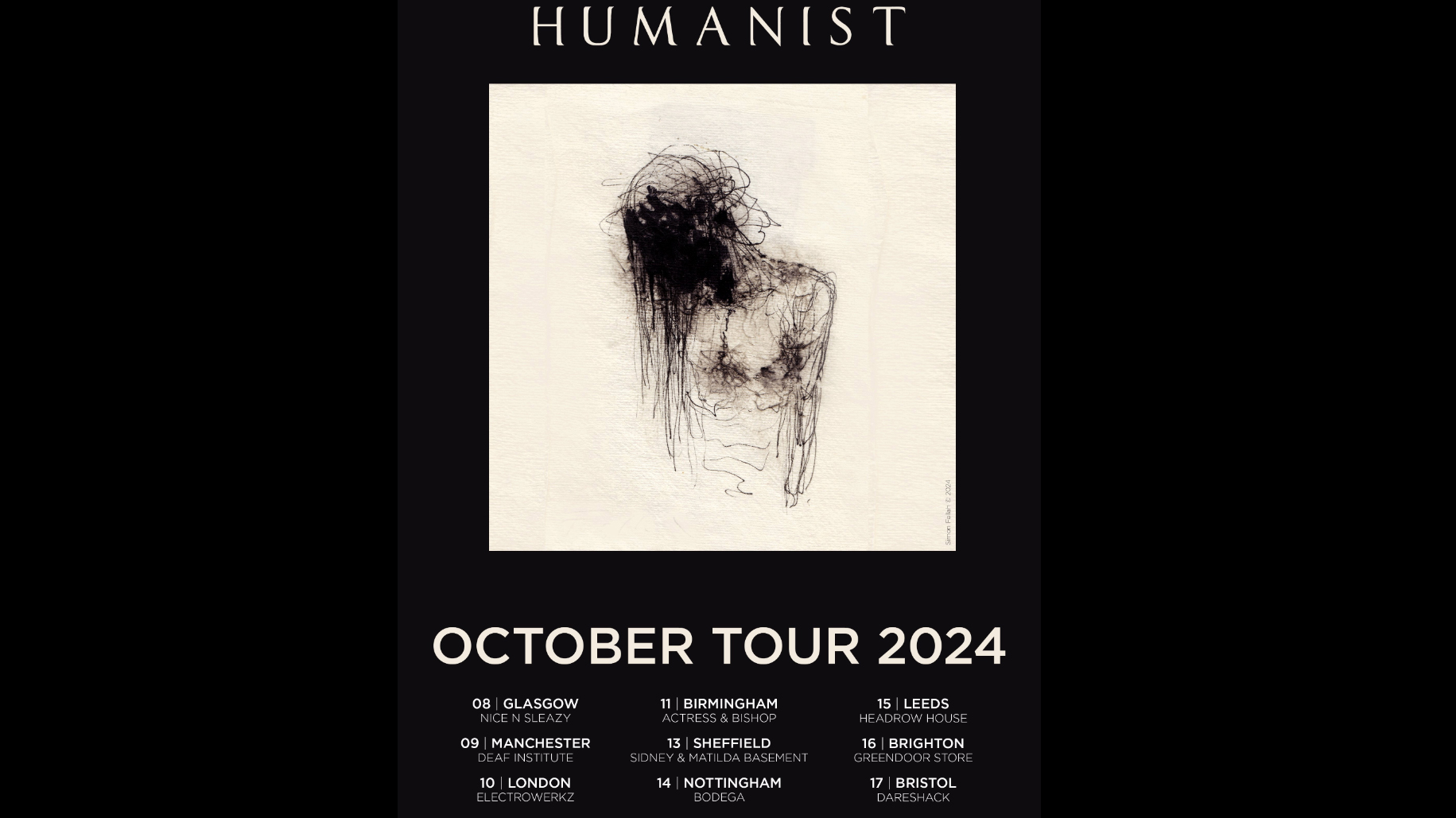
- On The Edge Of A Lost And Lonely World is out now on Bella Union. For tour dates visit Humanist

Rob is the Reviews Editor for GuitarWorld.com and MusicRadar guitars, so spends most of his waking hours (and beyond) thinking about and trying the latest gear while making sure our reviews team is giving you thorough and honest tests of it. He's worked for guitar mags and sites as a writer and editor for nearly 20 years but still winces at the thought of restringing anything with a Floyd Rose.
















